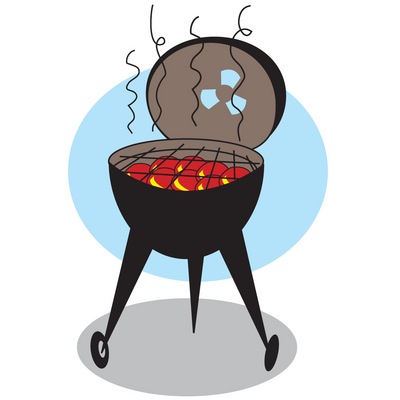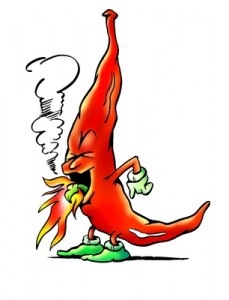 Grilled meat tastes good (of course you have to like meat). Unfortunately, two types of cancer causing compounds can increase or form in some foods that are grilled or cooked at high heat.
Grilled meat tastes good (of course you have to like meat). Unfortunately, two types of cancer causing compounds can increase or form in some foods that are grilled or cooked at high heat.
Two Dangerous Compounds
Heterocycline amines (HCAs) increase when meat — especially beef — is cooked with high heat – not just by grilling but by pan-frying, too. HCAs can damage DNA and start the development of cancer. Most evidence connects them to colon and stomach cancer, but they may be linked to other types of cancer, too.
Polycyclic aromatic hydrocarbons (PAHs) increase with grilling because they form in smoke and can get deposited on the outside of meat.
Five Things You Can Do
Here are five things you can do to decrease the formation of HCAs and PAHs:
- Cook or fry at lower temperatures to produce fewer HCAs. You can turn the gas down or wait for the charcoal’s low-burning embers.
- Raise your grilling surface up higher and turn your meat very frequently to reduce charring — which is highly carcinogenic. Grilling fish takes less cooking time and forms fewer HCAs than beef, pork and poultry.
- Marinate your meat. According to the American Institute for Cancer Research, marinating can reduce HCA formation by as much as 92 to 99%. Scientists think that the antioxidants in marinades help block HCA formation.
- Add some spices and rubs. Rosemary and turmeric, for example, seem to block up to 40% of HCA formation because of their antioxidant activity. A study by Kansas State University found that rubbing rosemary onto meat before grilling greatly decreased HCA levels. Basil, mint, sage, and oregano may be effective, too.
- Select leaner cuts of meat and trim excess fat to help reduce PAHs. Leaner cuts drip less fat – and dripping fat causes flare-ups and smoke which can deposit PAHs on your food.



